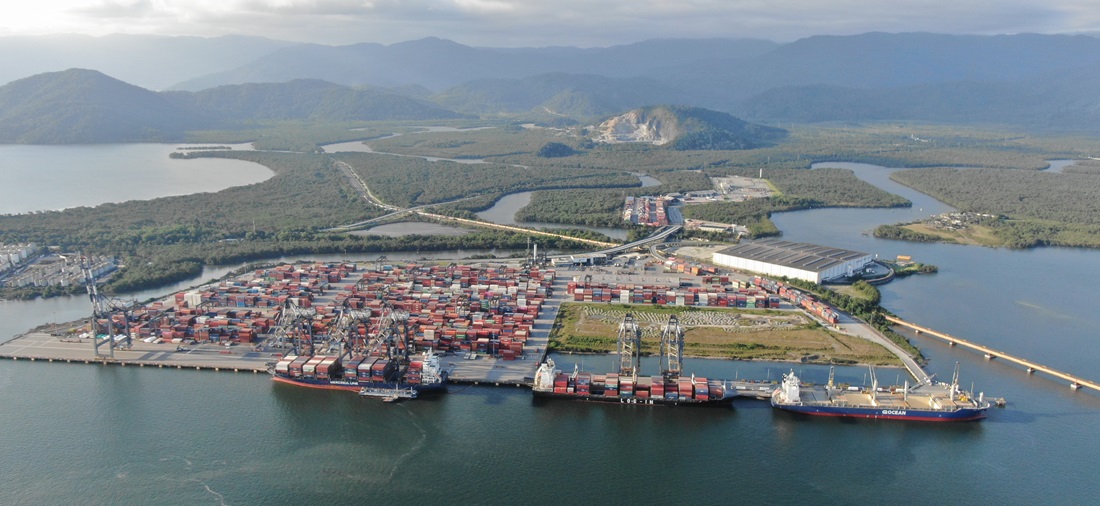
Brazil’s Top Audit Court Rules THC2 Fee Irregular at Ports
Sep, 05, 2024 Posted by Gabriel MalheirosWeek 202436
Brazilian Federal Audit Court (TCU) issued a decision on Wednesday (Sept. 4) that makes charging the fee known as Terminal Handling Charge 2 (THC2), also called Segregation and Delivery Service (SSE), illegal at ports. Press agency A Tribuna reported that the Superior Court of Justice (STJ) has also prohibited this fee on the same day.
Port terminals charged the THC2 fee for handling and delivering containers to customs-bonded warehouses (inland terminals or dry ports). The TCU had previously ruled this charge illegal in 2022, but the National Agency for Waterway Transportation (Antaq) appealed, arguing in favor of the fee. However, the court rejected these arguments, and the TCU ordered the annulment of all provisions in Antaq’s Resolution 72/2022, which authorized the fee once more.
Arguments
In his opinion, Augusto Nardes, the presiding justice, explained that to fully understand the THC2 fee and debate its legality, it is first necessary to look at the historical context of port operations and how they evolved.
Nardes recalled that before the 1980s, all cargo handling and storage occurred within the port, near the docking areas. This caused significant delays and increased costs, as customs clearance took longer, keeping ships idle and raising storage expenses.
To address these issues, an independent customs-bonded area was created outside the main port area, often referred to as a “dry port” or inland terminal. This allowed cargo to be stored in different locations chosen by the cargo owner, and port operators were required to move the cargo there within 48 hours.
Initially, this change improved efficiency, but as customs clearance began to occur in these new areas, the ports started losing revenue from storage fees. In response, ports began charging a fee for transferring containers to the bonded regions.
In 1995, following port privatization and the replacement of port authorities with private terminal operators, the rules changed again. Initially, these new port terminals did not charge for delivering goods, but they later introduced the THC2 fee when cargo owners chose not to store their goods at the terminal until customs clearance.
Nardes noted that there is already an import THC fee that covers the services of removing containers from ships and placing them in terminal storage. The THC2 fee would be an additional charge.
The justice argued that there is a lack of transparency regarding which services the fee covers. “There is no clear standardization of these services within the box rate, making it difficult to determine exactly what is being charged under each fee—especially with THC and THC2. This creates a risk of port operators charging twice for the same services. For this reason, I believe the appeal should be denied,” Nardes explained. The TCU plenary supported his recommendation.
CADE
A 2022 study by the Administrative Council for Economic Defense (CADE) indicated no grounds to consider the THC2 fee illegal. However, the agency deemed the charge economically unsound. Even if Antaq did not think it illegal, the fee could still be classified as an economic violation.
Source: A Tribuna
Click here to read the original text: https://www.atribuna.com.br/noticias/portomar/tcu-reafirma-que-taxa-de-manuseio-de-terminal-nos-portos-brasileiros-e-irregular-1.432920
-
Grains
Jun, 26, 2024
0
Wheat: low stocks and higher export parity sustain prices
-
Ports and Terminals
Dec, 26, 2024
0
STJ Court Lifts Injunction Blocking Santos Port Authority from Managing Itajaí Port
-
DW 2020 EN
Jun, 08, 2020
0
DATAMARWEEK 09 JUNE 2020
-
Economy
Apr, 09, 2024
0
Brazilian trade balance posts surplus of US$ 2.88 bn in 1st week of April



